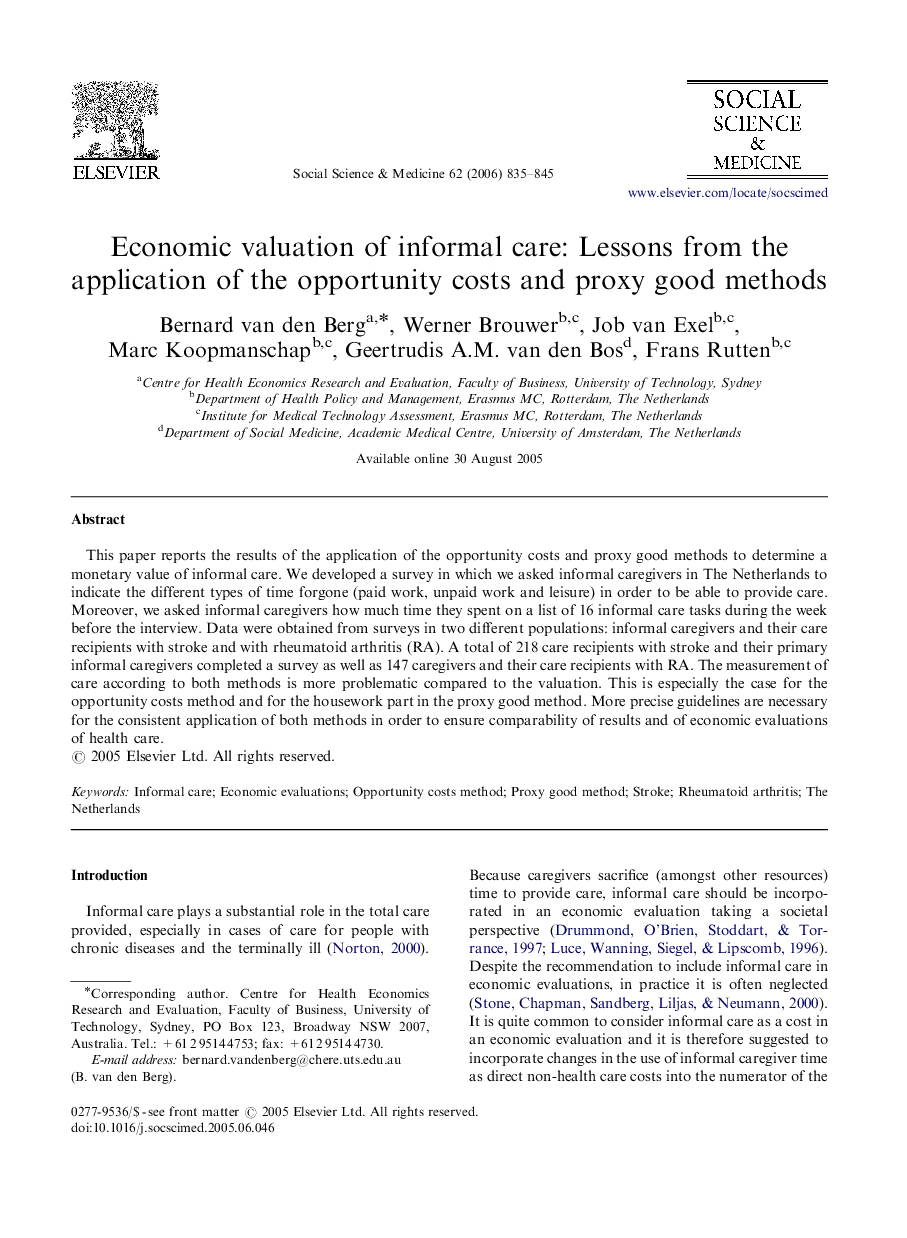| Article ID | Journal | Published Year | Pages | File Type |
|---|---|---|---|---|
| 955111 | Social Science & Medicine | 2006 | 11 Pages |
This paper reports the results of the application of the opportunity costs and proxy good methods to determine a monetary value of informal care. We developed a survey in which we asked informal caregivers in The Netherlands to indicate the different types of time forgone (paid work, unpaid work and leisure) in order to be able to provide care. Moreover, we asked informal caregivers how much time they spent on a list of 16 informal care tasks during the week before the interview. Data were obtained from surveys in two different populations: informal caregivers and their care recipients with stroke and with rheumatoid arthritis (RA). A total of 218 care recipients with stroke and their primary informal caregivers completed a survey as well as 147 caregivers and their care recipients with RA. The measurement of care according to both methods is more problematic compared to the valuation. This is especially the case for the opportunity costs method and for the housework part in the proxy good method. More precise guidelines are necessary for the consistent application of both methods in order to ensure comparability of results and of economic evaluations of health care.
